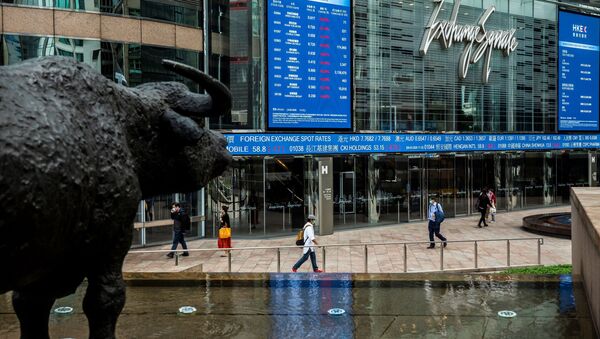Asia-Pacific markets reacted negatively to the unpromising Brexit trade deal perspective as well as to the indeterminate second US coronavirus relief bill in Thursday morning trade, according to CNBC News.
Japan's Nikkei 225 and Topix were lower 0.39 percent and 0.17 percent respectively after the market opened. South Korea’s Kospi index fell 1.11 percent. Australian benchmark ASX 200 dropped 0.56 percent while its sections all finished in the red. The energy subindex was down 1.05 percent, as oil prices have declined.
Meanwhile, on Wall Street, stocks closed negatively on Wednesday evening, with the tech-heavy Nasdaq leading losses with a nearly 2 percent drop. The Dow Jones Industrial Average, Wall Street’s broadest stocks gauge, finished down 0.4 percent to close at 30,069, after a record high at 30,320. The S&P 500, a barometer for the top 500 US stocks on the New York Stock Exchange, slid 0.8 percent to finish at 3,673, after setting an all-time high of 3,712 earlier.
On Wednesday, British PM Boris Johnson held a further round of negotiations with European Commission President Ursula von der Leyen in Brussels, where both of them agreed that a firm decision should be made by Sunday about the future of the talks. At the moment, trade with Northern Ireland and the level of access to British fishing grounds given to EU vessels are the most crucial issues in talks. The UK and the European Union are supposed to come to an agreement before the Brexit transition period expires on 31 December, as Boris Johnson refused to prolong it last year.
On Capitol Hill, debates over the second financial aid continue as the coronavirus-related crisis is striking the country. Republicans and Democrats remain deadlocked over key provisions of the recently introduced $908 billion relief bill. The package has to be approved by 11 December, but Congress has requested another week to negotiate the bill, with a new deadline set for 18 December.


